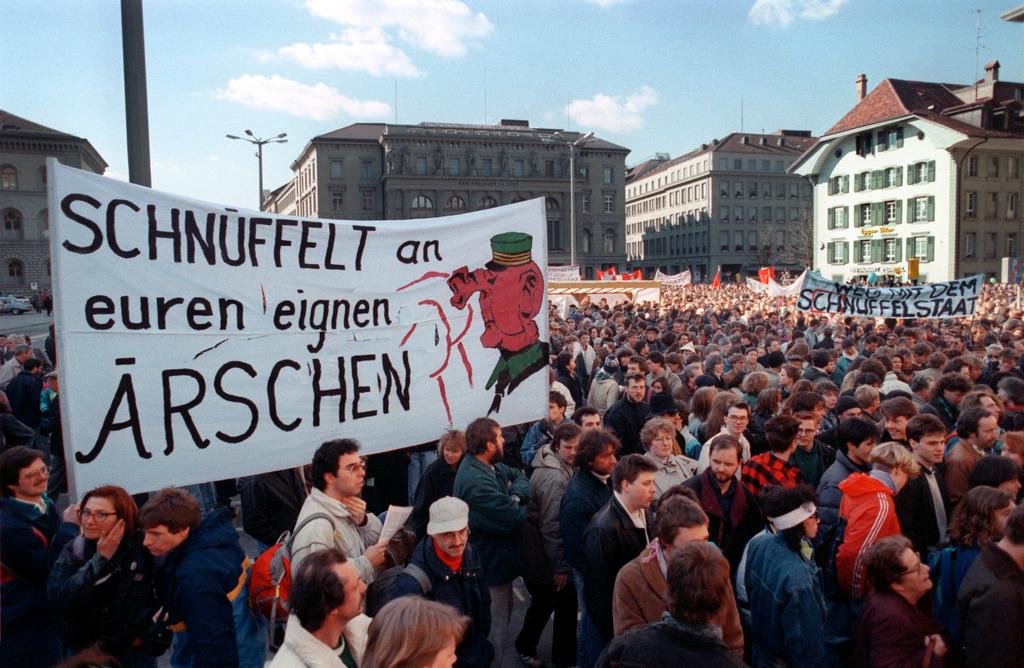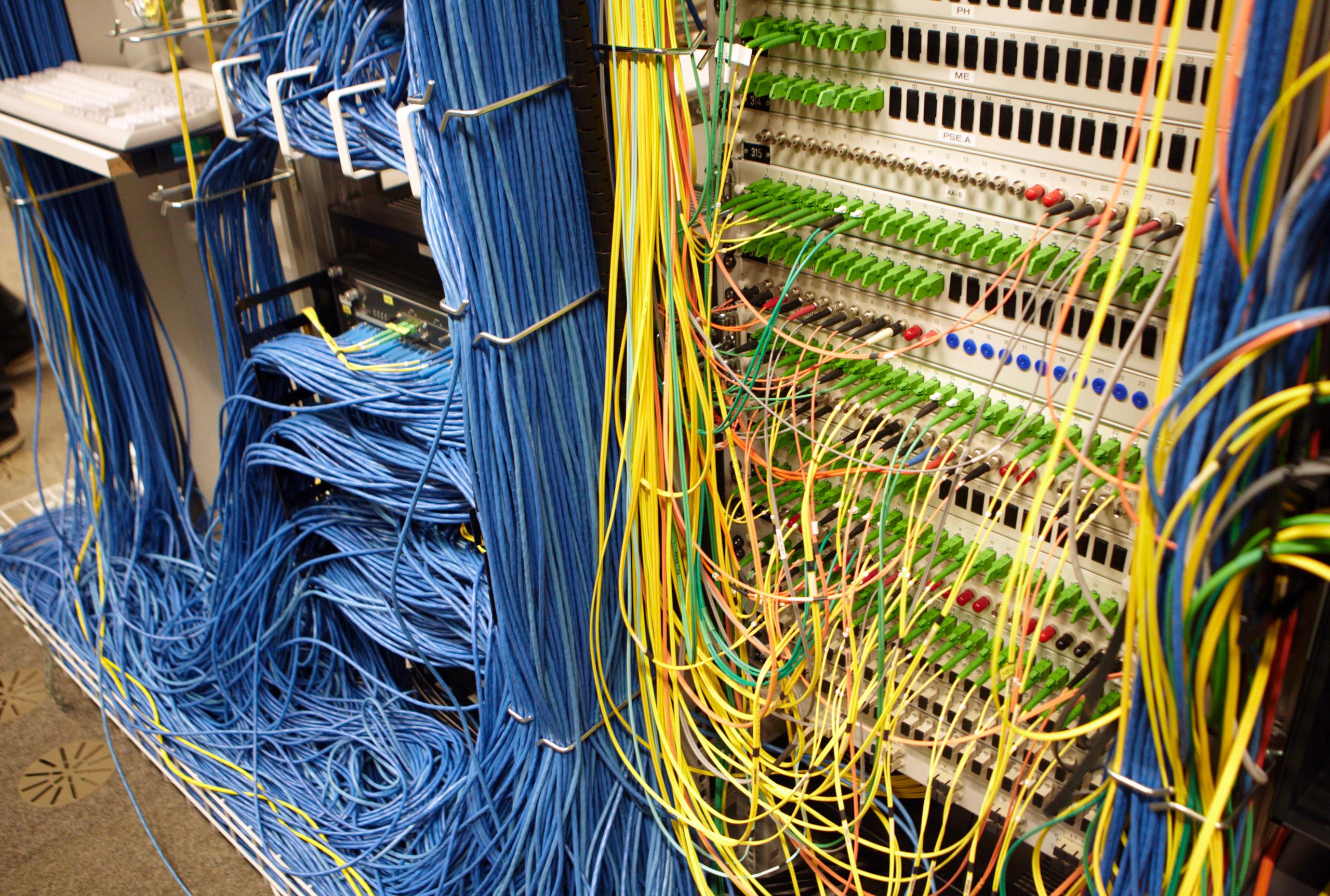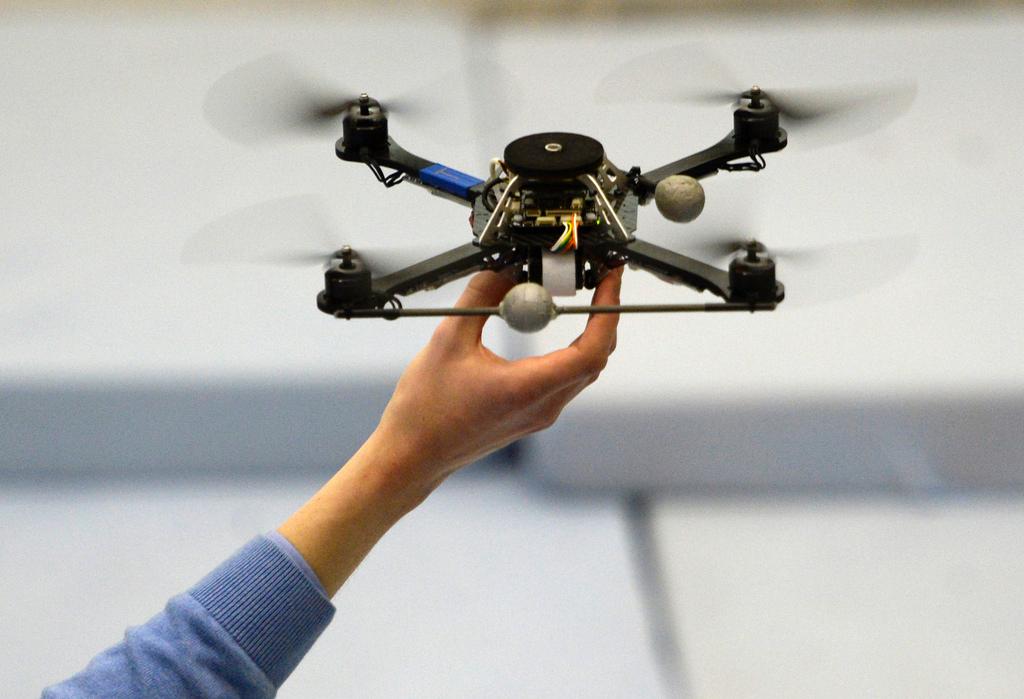Secret service reform pitches security vs privacy

Could reform of Switzerland’s intelligence service lead to widespread state snooping? The political left think so. But parliament and the government say the agency needs more powers to prevent terrorism and the trade in arms. Voters have the final say on September 25.
The legal amendment would give the Federal Intelligence ServiceExternal link (FIS) the right not only to tap phone lines but also to survey e-mails, access computer systems abroad and bug private apartments.
A centre-right majority in parliament approved the planned reforms last September, arguing they were an indispensable tool for combatting militant extremist attacks. They point out cases of digital attacks against the defence ministry and the state-owned Ruag defence technology group.
“We live in a world that is undergoing a lot of changes. Therefore we need a law that is up to date and the tools to combat the threat,” says Hugues Hiltpold, a parliamentarian for the centre-right Radical Party.
He says the FIS has limited possibilities and its powers have to be boosted to fulfil its tasks.
Leftwing political parties, trade unions and civil society groups collected more than 56,000 signatures to challenge the planned law, sponsored by the government, in a nationwide vote.
An overwhelming majority in parliament had approved the reform last September. Previous reforms to boost the powers of the intelligence service were rejected by parliament in 2009. In 2010 the domestic and foreign units were merged to become the FIS.
A separate referendum allowing the justice authorities to install computer surveillance programmes to investigate crimes failed earlier this month. Campaigners, mainly youth chapters of political parties from the left and the right, did not succeed in collecting at least 50,000 signatures within 100 days.
Opponents of the law, however, argue that the legal amendments are disproportionate and that the authorities create illusions of security.
“This law seeks to introduce mass observation and preventive surveillance. Both methods are not efficient and go against the basic rights of citizens,” says Jean Christophe Schwaab, a parliamentarian and leading member of the leftwing Social Democrats.
Schwaab is concerned that an innocent person could become the target of security agents, based on vague hints and not because of well-founded suspicions in connection with a serious crime.
Clear rules
Allegations of arbitrary surveillance are refuted by Hiltpold. He says Switzerland must not be compared with the other countries where such methods were commonplace. He says there are clear rules that have to observed before the intelligence service can launch a formal surveillance of a suspect.
Hiltpold considers the reform to be a “good compromise”, limiting security risks while upholding basic rights of the individual.
“We are not creating an American-style National Security Agency [NSA] in Switzerland. Our intelligence agency is only being given the means to do its job properly,” he says.
Hiltpold stresses that it takes the approval of three different institutions – the defence minister, the cabinet and the Federal Administrative Court – to open proceedings.
He believes that there will not be more than 20 such requests annually.
Distrust
Opponents of the law, including civil rights groups and trade unions, have little confidence in the proposed system.
“A judge who deals with only about 20 cases a year is in a weak position because he can’t build up enough expertise. The same goes for the political authorities,” says Schwaab.
It is very difficult to reject an urgent request from the intelligence service “in the current climate of general paranoia”, he continues.
The committee which forced the referendum also warns that there is an inherent risk of intelligence services trying to abuse their powers.
The revelations of Edward Snowden about the NSA are a case in point, they say. Switzerland has its own history of secret service scandals. At the end of the Cold War era, it became known that the authorities collected about 900,000 files on people and organisations considered a threat to the state.

More
Secret files scandal again looms large
“There appears to be a tradition of snooping preventively on people,” says Schwaab.
The referendum group says that despite assurances to the contrary, the intelligence service has continued its policy of preventive surveillance without sufficient justification of a concrete threat. By 2010, a parliamentary control committee found the surveillance record included information on 200,000 people and organisations.
Efficiency
Both sides strongly disagree over whether the planned reform will result in more security.
Schwaab says perpetrators are often known to the authorities well before they launch their terrorist attacks. He blames a perceived inefficiency in data exchange for the failure to prevent the crimes.
An increase in information on suspects, also through tapping computers, does not necessarily lead to more security.
“The sheer amount of information available makes its handling difficult,” he says.
Hiltpold for his part admits that more information cannot solve all problems, but he says there are many cases, hardly noticed by the media, where the authorities successfully intervened to prevent an attack.
Switzerland would run a high risk of attracting terrorists, if voters rejected the proposal, according Hiltpold. “All neighbouring countries have amended their legislation to protect them better from a risk of attacks.”
Cooperation
The Swiss secret service recently published details of the extent of data exchange with agencies from other countries.
The FIS last year obtained about 9,000 data files, and passed on about 4,500 data files to foreign agencies.
Launching the campaign in favour of the reform of the intelligence service, Defence Minister Guy Parmelin, said he hoped that Switzerland would depend less on outside sources if voters approved the legal amendment.
The amended law also ensures a “right balance between security and a personal privacy”, he added.
However, the government’s data protection and information watchdog warns of the reform could undermine the rights of innocent citizens. There is risk of that the intelligence service is considered a “dark chamber” as the agency’s information gathering policy is not subject to the general public law commissioner, according to a statement published in June.

In compliance with the JTI standards
More: SWI swissinfo.ch certified by the Journalism Trust Initiative





You can find an overview of ongoing debates with our journalists here. Please join us!
If you want to start a conversation about a topic raised in this article or want to report factual errors, email us at english@swissinfo.ch.